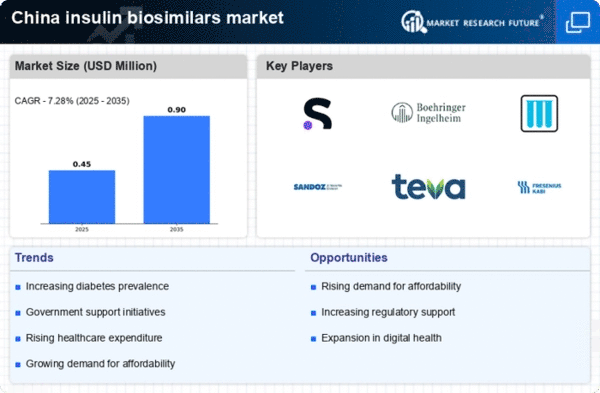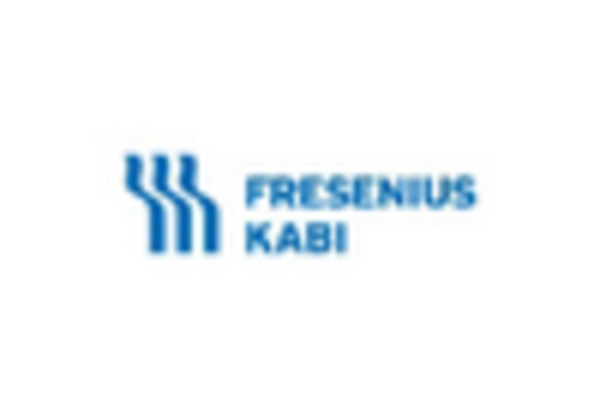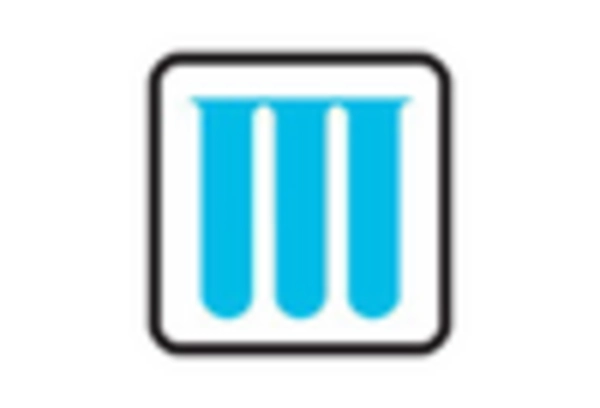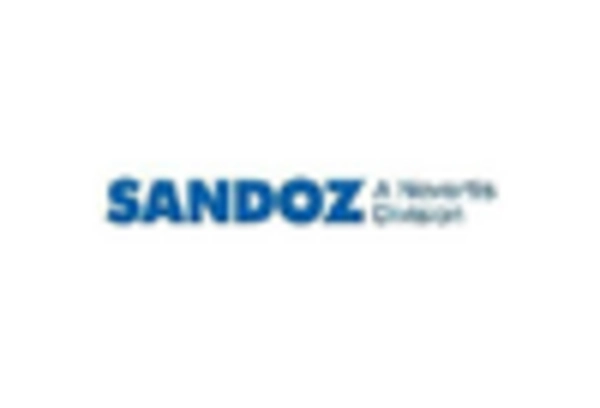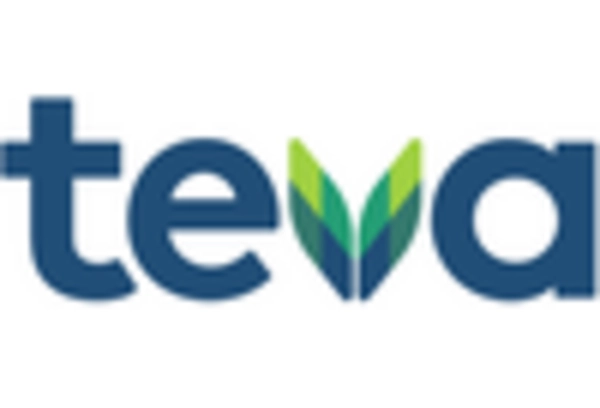Growing Prevalence of Diabetes
The increasing prevalence of diabetes in China is a primary driver for the insulin biosimilars market. As of recent estimates, approximately 11.6% of the adult population in China is affected by diabetes, translating to over 120 million individuals. This rising incidence necessitates a greater demand for insulin therapies, including biosimilars, which are often more affordable alternatives to original biologics. The insulin biosimilars market is expected to benefit from this trend, as healthcare providers seek cost-effective solutions to manage diabetes effectively. Furthermore, the Chinese government has been promoting the use of biosimilars to alleviate the financial burden on patients and the healthcare system, thereby enhancing the market's growth potential.
Cost-Effectiveness of Biosimilars
Cost-effectiveness is a significant driver for the insulin biosimilars market in China. Biosimilars typically offer a more affordable option compared to their reference biologics, which can be prohibitively expensive for many patients. The average cost of insulin in China can reach up to $100 per month for traditional therapies, while biosimilars may reduce this cost by 30-50%. This price advantage is particularly crucial in a country where healthcare expenditures are rising. As patients and healthcare providers increasingly recognize the economic benefits of biosimilars, the market is likely to expand. Additionally, the Chinese government has been actively encouraging the adoption of biosimilars to improve access to essential medications, further propelling market growth.
Regulatory Support for Biosimilars
Regulatory support plays a crucial role in shaping the insulin biosimilars market in China. The National Medical Products Administration (NMPA) has established a streamlined approval process for biosimilars, which encourages manufacturers to enter the market. This regulatory framework aims to ensure that biosimilars meet stringent quality and efficacy standards while facilitating quicker access for patients. As a result, the number of approved biosimilars is expected to increase, enhancing competition and driving down prices. The NMPA's proactive stance on biosimilars is likely to foster innovation and investment in the insulin biosimilars market, ultimately benefiting patients who require insulin therapy.
Increased Investment in Biopharmaceuticals
Increased investment in the biopharmaceutical sector is another key driver for the insulin biosimilars market in China. The Chinese government has been actively promoting the development of biopharmaceuticals as part of its broader healthcare strategy. This includes financial incentives for research and development, as well as support for domestic manufacturers. As a result, investments in biosimilar production are on the rise, with several companies expanding their manufacturing capabilities. This influx of capital is likely to enhance the quality and availability of insulin biosimilars, making them more accessible to patients. The insulin biosimilars market stands to benefit from this trend, as increased competition and innovation may lead to improved treatment options for diabetes management.
Rising Awareness Among Healthcare Professionals
The rising awareness among healthcare professionals regarding the benefits of biosimilars is a notable driver for the insulin biosimilars market. As more clinicians become educated about the efficacy and safety of biosimilars, they are more likely to prescribe these alternatives to their patients. This shift in prescribing behavior is crucial, especially in a country like China, where traditional insulin therapies have dominated the market. Educational initiatives and training programs aimed at healthcare providers are increasingly being implemented, which may lead to a greater acceptance of biosimilars. Consequently, this growing awareness could significantly impact the market dynamics, fostering a more favorable environment for the adoption of insulin biosimilars.


